Exclusive Interview with Robbie Thompson: A Supernatural Memoir from B. G.’s Canteen – Part 4
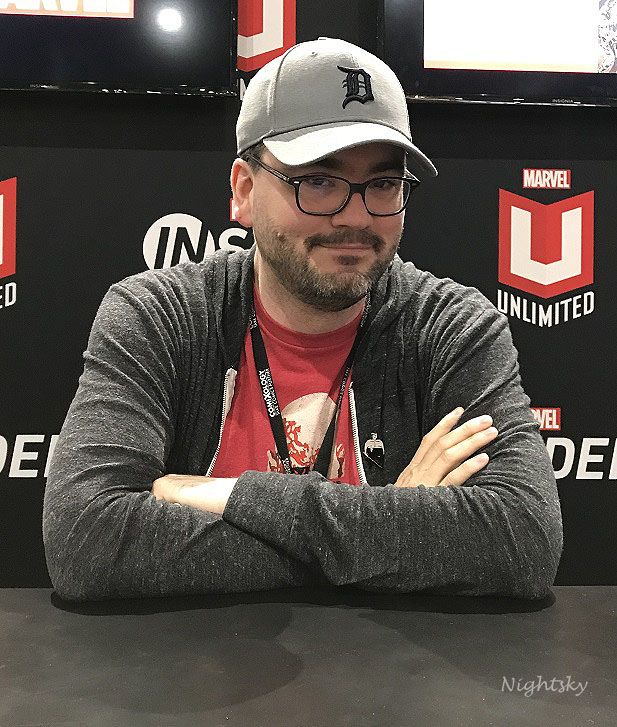
Robbie Thompson is widely considered by Supernatural fans to be one of its most creative, talented writers. From 2011 to 2016 (seasons 7 through 11), Robbie wrote 18 episodes, including the series’ milestone 200th episode (“Fan Fiction” 10.05), and co-produced a total of 94 hours of the series. His beloved characters and imaginative plots forever changed the course of Supernatural‘s storyline. After penning one of Supernatural’s most pivotal episodes (“Don’t Call Me Shurley” 11.20), Robbie left Supernatural to join the Marvel universe as a writer of science fiction comic books.
Over a span of four months in 2019, Robbie talked with me about his time with Supernatural. We began our conversation at his Marvel signing table during the Chicago Comic and Entertainment Expo (C2E2). If things really do happen for a reason, this turned out to be the most fortuitous timing possible for us to be together (at least for me). When the interview began, we were blissfully ignorant that our interview date, Friday, March 22, would be the day that changed everything for the Supernatural family. As fate would have it, our conversation was shockingly interrupted when we all learned that Jared, Jensen and Misha had announced the end of Supernatural. Fans’ reactions and Robbie’s consoling presence became an unexpected part of that day’s interview (Part 1). Consequently, our discussion, which had been planned to last approximately an hour, ended up extending over two full days at C2E2, then continued months later at San Diego Comic-Con. When I finally turned off my recorder, Robbie had gifted us with nearly two hours of insights about Supernatural‘s writers’ room, the myriad of creative decisions that went into his many outstanding episodes, and the twists and turns of his career. Our conversation was casual, fluid and candid, as Robbie shared his thoughts between signing collectibles and posing for fan photos.
Part 1 of “A Supernatural Memoir from B.G.’s Canteen” covers Robbie’s experiences writing the milestone 200th episode, the writing process behind Supernatural‘s scripts, and the first two of Robbie signature elements, effectively using “Time Travel” and “Living Spaces” in storytelling.
Part 2 continues the exploration of Robbie’s episodes by focusing on three more story components: “Incorporating Classic Stories,” experimenting with “Non-Traditional Formats” and “Music” as a tool to create mood. We concluded our time in Chicago discussing why Robbie left Supernatural.
In Part 3, Robbie gives behind-the-scenes details about the last two of his episodes’ hallmarks: introducing distinctive “Characters” and “Reviving Plotlines.”
Part 4 concludes with Robbie sharing the origins of the memorable music in his episodes, more information on the Supernatural writing process, and looking at what he might do next.
For reference, the following are Robbie’s Supernatural episodes, roughly categorized as either standalone (also referred to as “monster of the week”) or myth arc stories:
|
Standalone Episodes |
Myth Arc Episodes |
|
7.12 “Time After Time” |
7.06 “Slash Fiction” |
|
8.04 “Bitten” |
7.20 “The Girl with the Dungeons and Dragons Tattoo” |
|
8.11 “LARP and the Real Girl” |
8.17 “Goodbye Stranger” |
|
8.20 “Pac-Man Fever” |
9.11 “First Born” |
|
9.04 “Slumber Party” |
9.18 “Meta Fiction” |
|
10.05 “Fan Fiction” |
10.18 “Book of the Damned” |
|
10.11 “No Place Like Home” |
10.20 “Angel Heart” |
|
11.04 “Baby” |
11.11 “Into the Mystic” |
|
11.16 “Safe House” |
11.20 “Don’t Call Me Shurley” |
I hope you enjoy this peek inside the brilliant writing mind of Robbie Thompson, and the inner workings of creating Supernatural‘s magic.
A Supernatural Memoir from B. G.’s Canteen – Part 4
Friday, July 19, 2019
Robbie first talked with me about the role music plays in his storytelling in Part 2 of this interview. In this follow-on segment, we drill down to learn how each of the most significant pieces of music was chosen for his episodes.
“Music is Magic.”
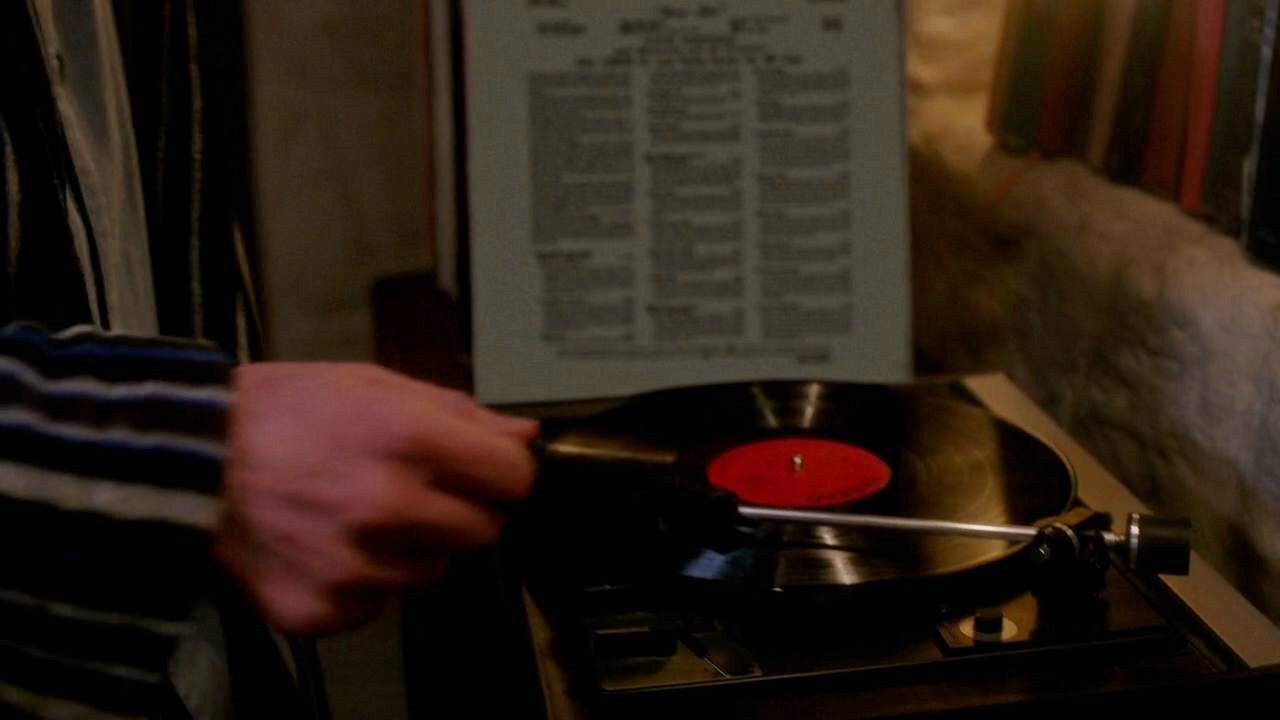 “Will You Still Love Me Tomorrow” opens “Into the Mystic” (11.11)
“Will You Still Love Me Tomorrow” opens “Into the Mystic” (11.11)
Nightsky: Your episodes are enriched with wonderful music.
Robbie: I got really lucky that some of the songs I pitched got through, but I also worked with that post-production crew, Bob [Singer] as well as Phil [Sgriccia]. They’re all music guys. Bob’s a musician. They all love music of that era as well. Todd [Aronauer, Post-Production Producer] as well. All the editors – they would just find the perfect songs. Then sometimes we’d get them and sometimes we wouldn’t.
Nightsky: When you say it was “post,” would you write in the script, “insert music here” or “this is what I’m looking for” or simply “it needs something”?
Robbie: No. Sometimes I would put in a song, and we couldn’t get it. Then they would find something. The post department, the editors, on that show are so talented, every single one of them. They would see the life of the scene might need a song to kind of just help—i.e. it would be a little too dry so they would put in a song. Phil and all the editors had such a great library of songs that they hadn’t used yet, but were appropriate for Supernatural. If you needed a song, they always found the perfect one, or they found the song that would be a good match. So, I might pitch a song, but it really took a village to make that song actually work – financially, practically, legally, artistically. For example, Todd had to get it cleared, the director had to create shots that evoked a feeling, the editor had to create a rhythm with pictures and song, then the song itself was edited and mixed by a whole other crew. It’s not just one person. It’s a team effort all around.
Nightsky: Since music is important for the mood you wish to create in your episodes, can you share whatever details you remember about the circumstances behind each musical cue? I’ve listed all the songs you used.
Robbie: Speed Round!
Nightsky: “Slash Fiction” (7.06)
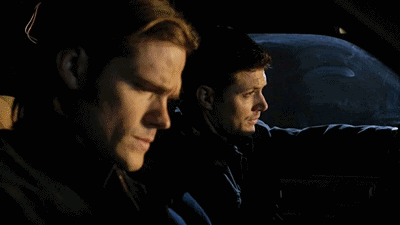
Robbie: “All Out of Love” was a song I pitched. I was obsessed with this trailer that’s completely antithetical for a movie called Animal Kingdom. It’s a really brilliant, very dark, bleak movie, and they used it in a very ironic way in the trailer; it’s pretty harsh in the film. But I just wanted a song that would be so-not what they [Sam and Dean] would listen to, but it’s one of those songs that when it comes on, it kind of hits you right in the feeling areas – and I just thought it’d be funny.
“Big Wide River of Love” was pitched by the post department.
Nightsky: “Walking on Sunshine” was used in both “The Girl with the Dungeons and Dragons Tattoo” (7.20) and “Pac-Man Fever” (8.20).
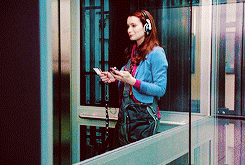
Robbie: “Walking on Sunshine” was a song I pitched. I used to do a bit in the writers’ rooms where I would say, “We need a montage to this song” because it’s a “get happy” song. Then I would act it out. So I just put it in there as sort of a joke amongst my friends. But it’s also one of those songs that as soon as you hear it, you wanna dance. I wanted Charlie to be this lovable character right from the jump. We’ve all had those private moments where we’re dancing to a song, and I thought, “Oh — I’m gonna pitch that song.”
Nightsky: “LARP and the Real Girl” (8.11)
Robbie: “China Grove” was pitched by the post department.
Nightsky: “Goodbye Stranger” (8.17)
Robbie: I literally wrote a script in college called, “Pac-Man Fever,” oddly enough, that ended with “Goodbye Stranger” and I always wanted to end something with that, so I pitched it for this episode, and they got it in. There’s a lovely bit where the song fades away at the end that Jeremy [Carver] pitched at the playback of the mix of the episode.
Nightsky: “Pac-Man Fever” (8.20)
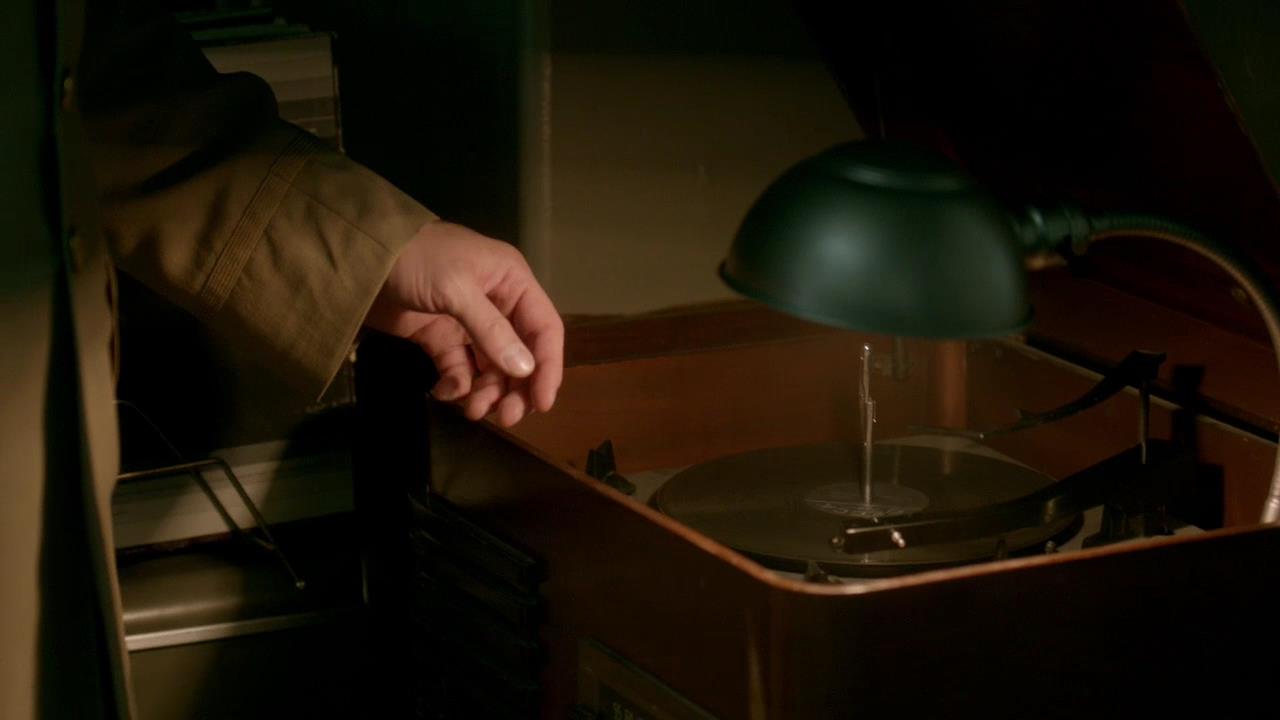
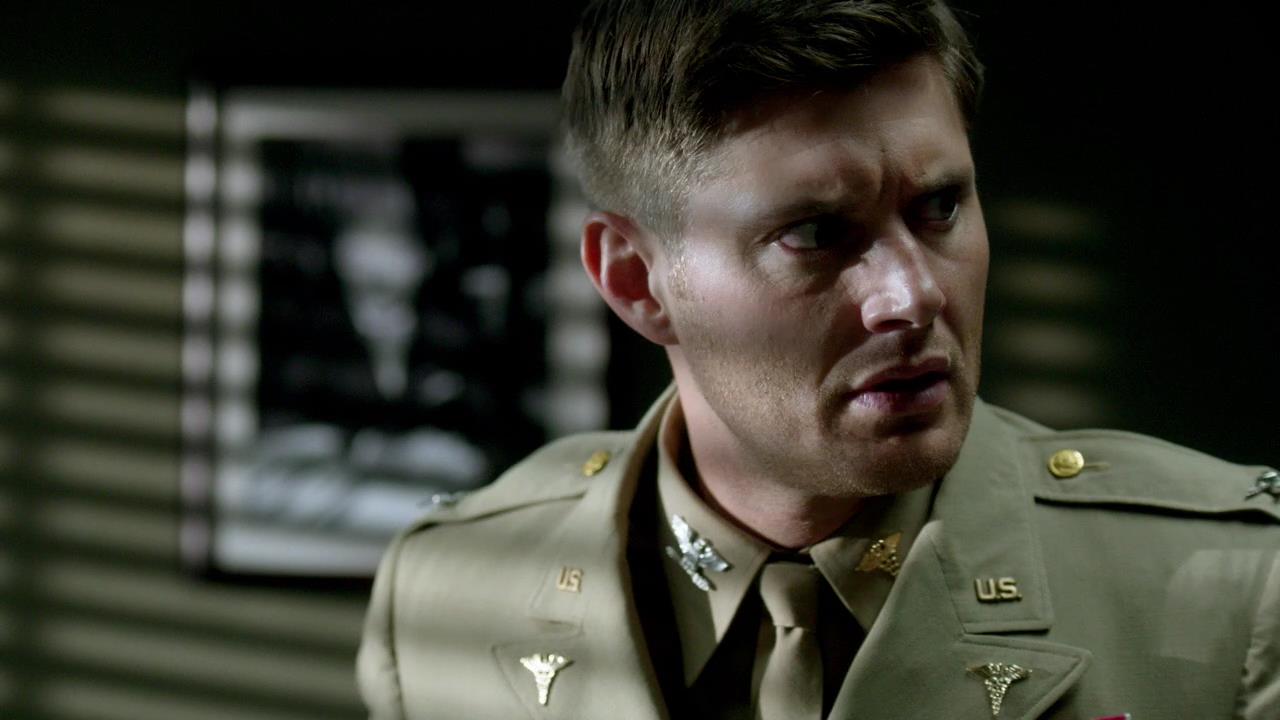
Robbie: The big band music in the dream [“Night Hop” by Benny Carter and His Orchestra] was pitched by Bob, I believe.
Nightsky: “Slumber Party” (9.04)
Robbie: “For Those About To Rock” was just a song I thought would be cool—a very good way to send her off. Then they played around with it in editorial to make it work with the picture.
Nightsky: “Meta Fiction” (9.18)
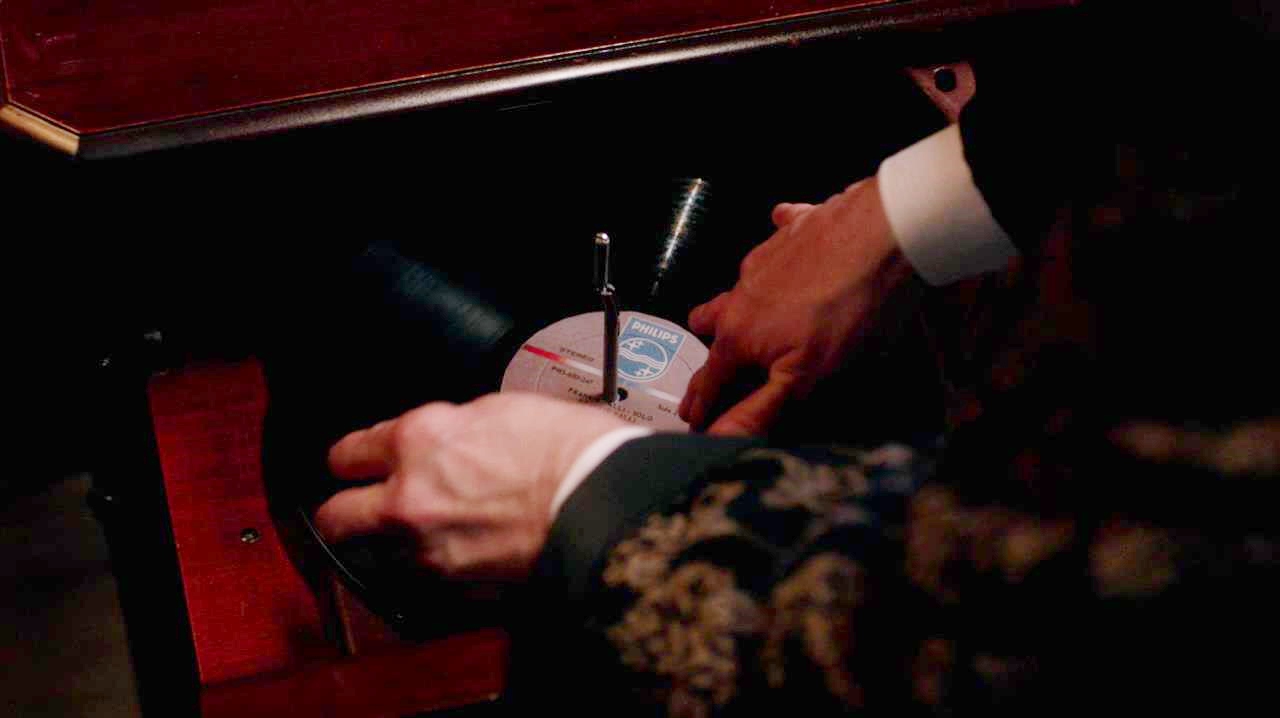
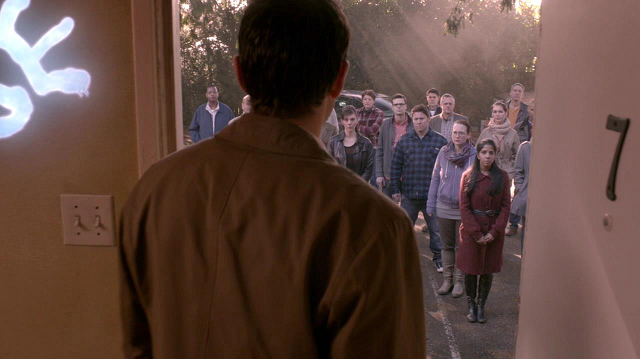
Robbie: “The Sun Ain’t Gonna Shine Anymore” just felt like the right song. I had been to Vegas with my mom the weekend before pitching that episode. I took her to see Jersey Boys. I hadn’t realized all those were Frankie Valli songs. They were songs that you knew, but you didn’t know were his. I loved the show, we had a great time, but that song would not leave my head, and so, yeah. I saw Jersey Boys, pitched that song, everyone got to work, and now it’s in an episode.
Nightsky: “Fan Fiction” (10.05). You wrote Dean’s emphatic objection that “there is no singing in Supernatural!” then turned around and made absolutely wonderful music the centerpiece of the 200th episode! Earlier (see Part 2), you said the idea for the “Supernatural musical” came from Jeremy and Bob. Three original songs were created for the production: “The Road So Far” and “I’ll Just Wait Here Then” are credited to Jay Gruska,
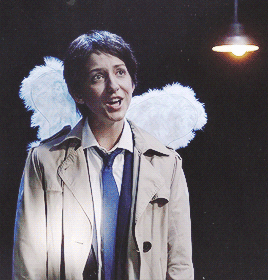
as well as an unplugged version of “Carry On Wayward Son” that brought everyone (Jared and Jensen included) to tears;
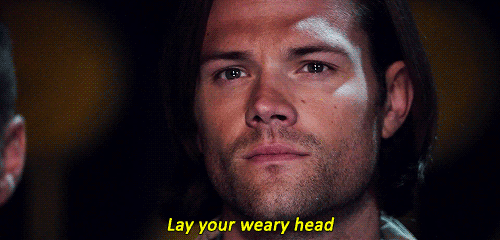
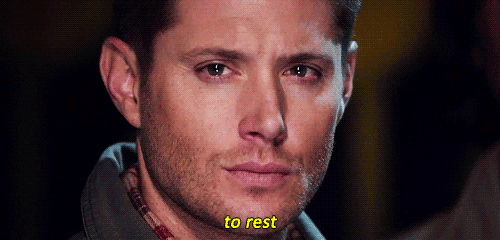
“A Single Man Tear” was composed by Christopher Lennertz. I understand that you wrote all the lyrics, though, earning a spot in the musicians’ union!
Robbie: All the original songs in the musical were co-written by one of Supernatural‘s two composers along with myself, though they did all the real work in my opinion. I sent scratch lyrics to Jay and Chris, they made wonderful changes to those, then wrote the music for each tune they were working on.
Nightsky: There was only one song in the episode that wasn’t written specifically for the show.
Robbie: “Sundown.” Phil Sgriccia pitched putting that song in there and it was perfect.
Nightsky: “Book of the Damned” (10.18)
Robbie: “The Boys Are Back in Town” I think was Phil and Todd. I did not script that [song], and neither did I with “Behind Blue Eyes.” I never would’ve put that in because I never in a million years would’ve thought we would’ve gotten that song. I believe that was all Phil and Todd.
Nightsky: “Angel Heart” (10.20)
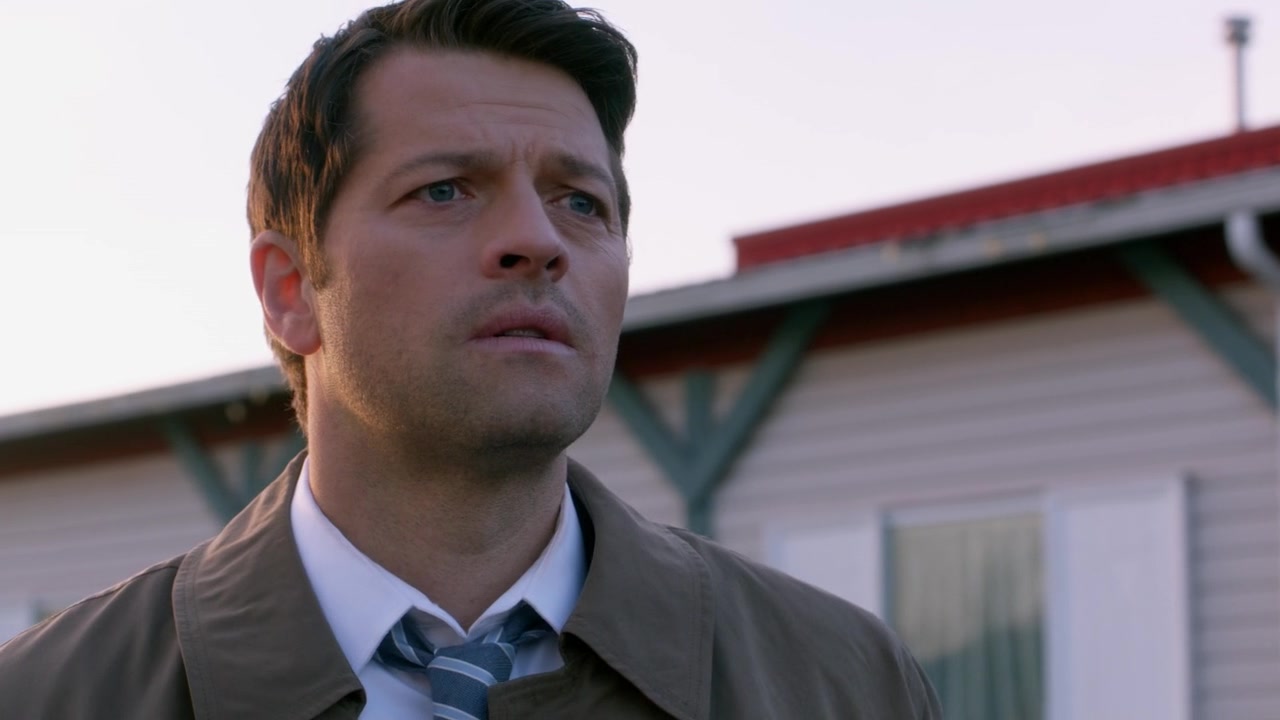
Robbie: “Blue Eyes Crying in the Rain.” I did script that one in. I’m a huge Willie Nelson fan. I used another one of his songs in “Safehouse.” It was just the right mood; it was sad. I was so excited we got that one.
Nightsky: “Baby” (11.04)
Robbie: “Guitar Man” was another Phil special. They just felt that one scene was a little—I think we got a network note on it, and Phil dropped that song in and it was perfect.
“I Wanna Know” by Big Jack Johnson and the Oilers. Again, that was put in post by either Phil or the editor.
“Night Moves” was a song I pitched.
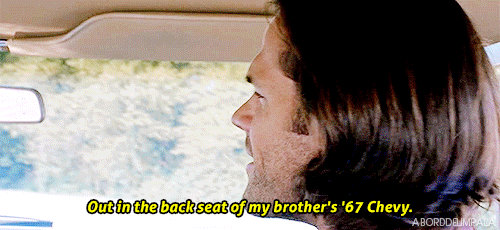
I had a list of songs for that moment that were good, but I was listing them off to my wife, and she was like, “Oh, dude, it’s gotta be ‘Night Moves’” and she was right. I listened to that song so much while I worked on that episode. I mean, if you look at the play count of “Night Moves” on my iTunes, it’s horrifying.
“Someday Soon” was definitely an important one to me. I grew up listening to a lot of Judy Collins, so I love her sound. I wanted something that would really contrast with what you normally hear in the car. It would be a song that, maybe, more Mary would like. Both my parents love Judy Collins, and still sing Judy Collins to this day. I think she’s amazing. I’m so grateful everyone made that song work because it meant a lot to me.
“Bad Girls” was Phil. I had put a different M.I.A. song in the script, and then Phil was like, “No, no, no. It’s this one.” Phil and Don Koch put in that song, and I was like, “I don’t know!” Then they were totally right.
Nightsky: “Into the Mystic” (11.11)
Robbie: “Will You Still Love Me Tomorrow.” We had a different song in there but couldn’t get it, unfortunately, so we came up with a list and this song won out.
“Wonderful, Wonderful” by Johnny Mathis was all the post team, as was “Prison Grove.” We had a different song which I can’t name, but we had a great song—it was perfect. But, unfortunately, the artist very politely declined. Then Phil and the editors found this perfect song.
Nightsky: “Safe House” (11.16)
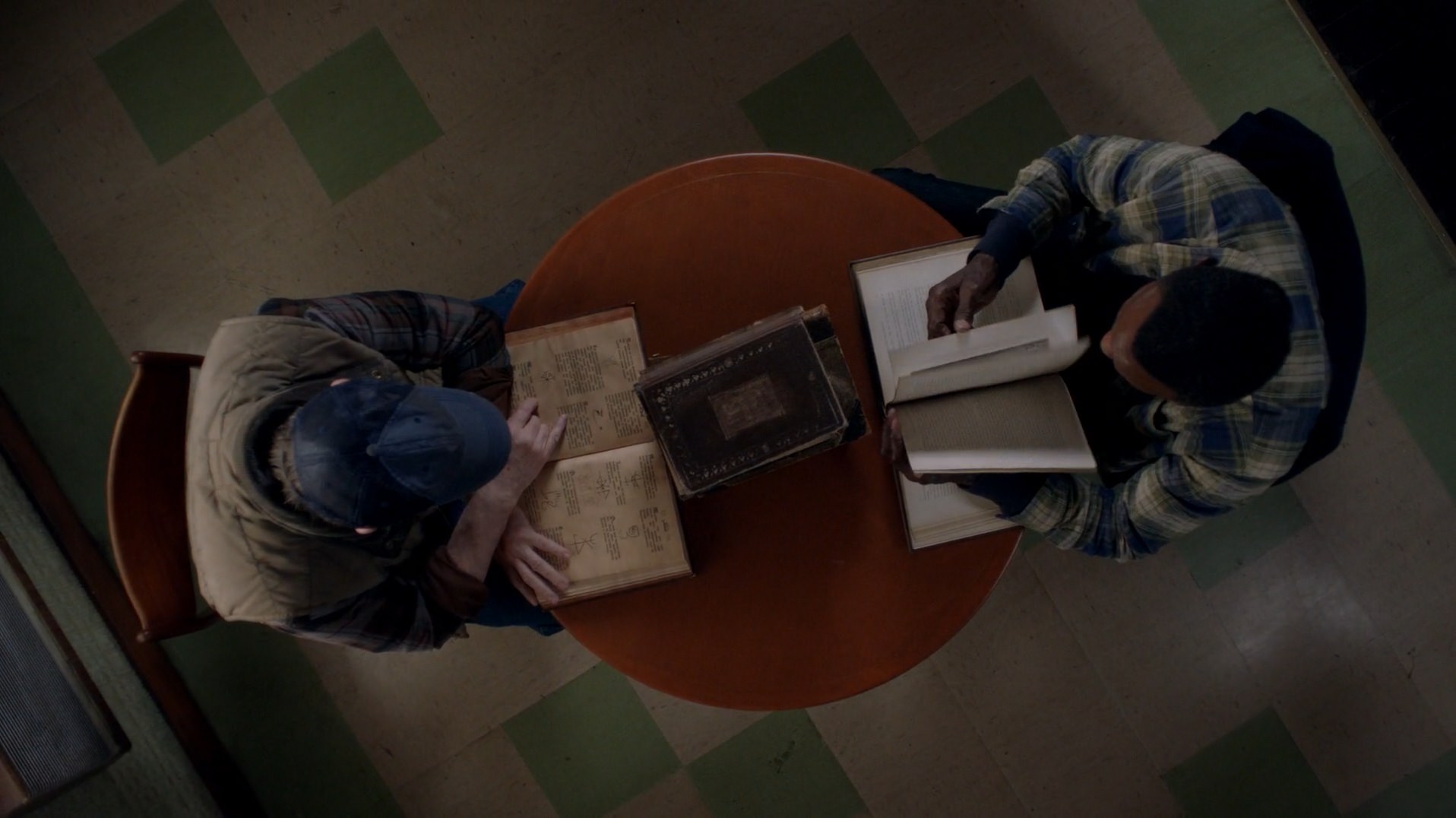
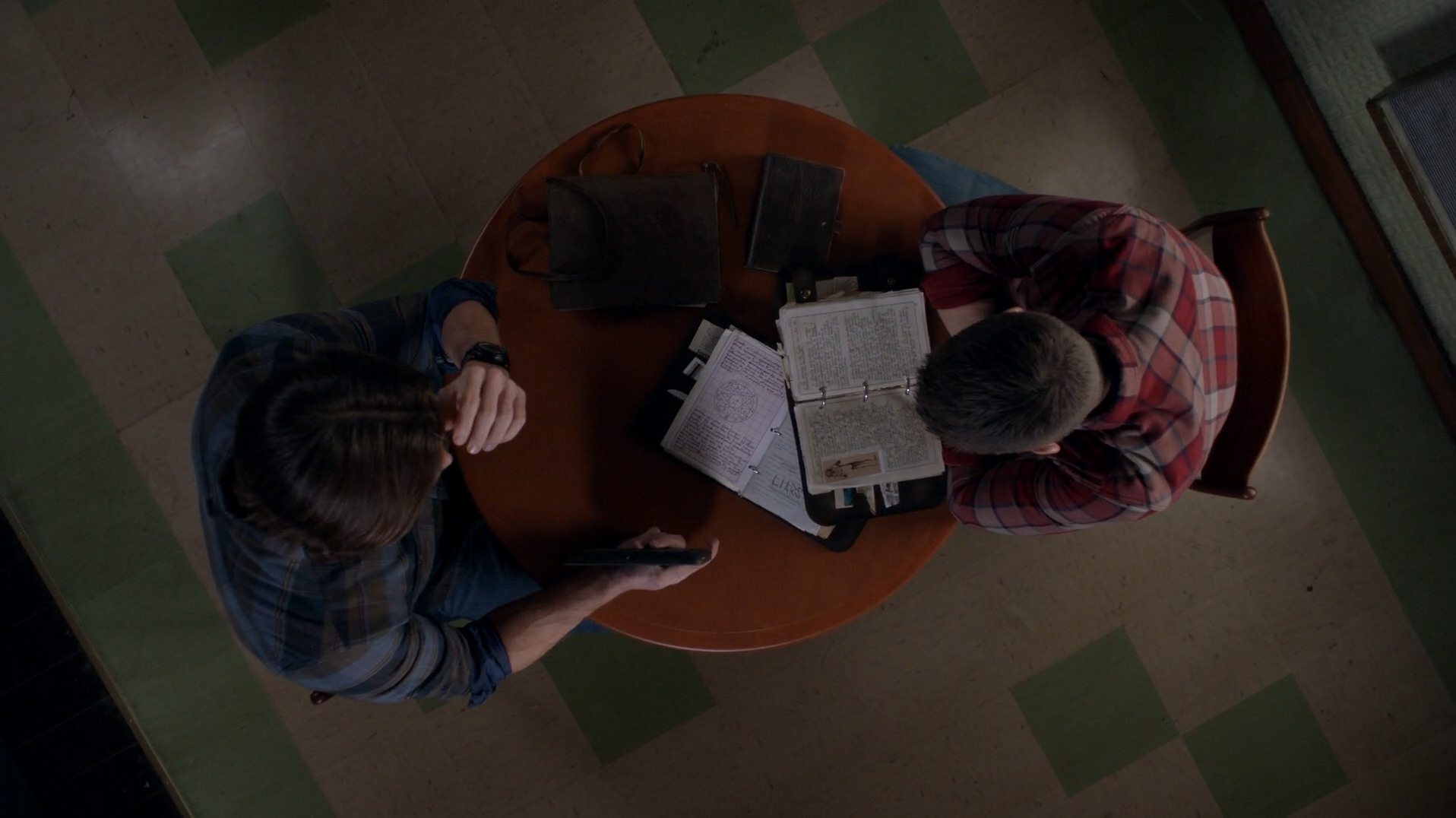
Robbie: “Nightlife” I pitched, along with “Midnight Rider” as well. I wanted a song that played in both eras, but I also wanted a song that kinda evoked their life. “Nightlife” was perfect.
Nightsky: “Don’t Call Me Shurley” (11.20)
Robbie: “Good Vibrations” was Nicole Baer. She always had such great song ideas. She put that one in as well as the “Gimme Shelter” song. I was like, “We’re never gonna get these” [but they made it happen].
I think Phil or Bob [Singer] put in “Don’t Answer the Door.”
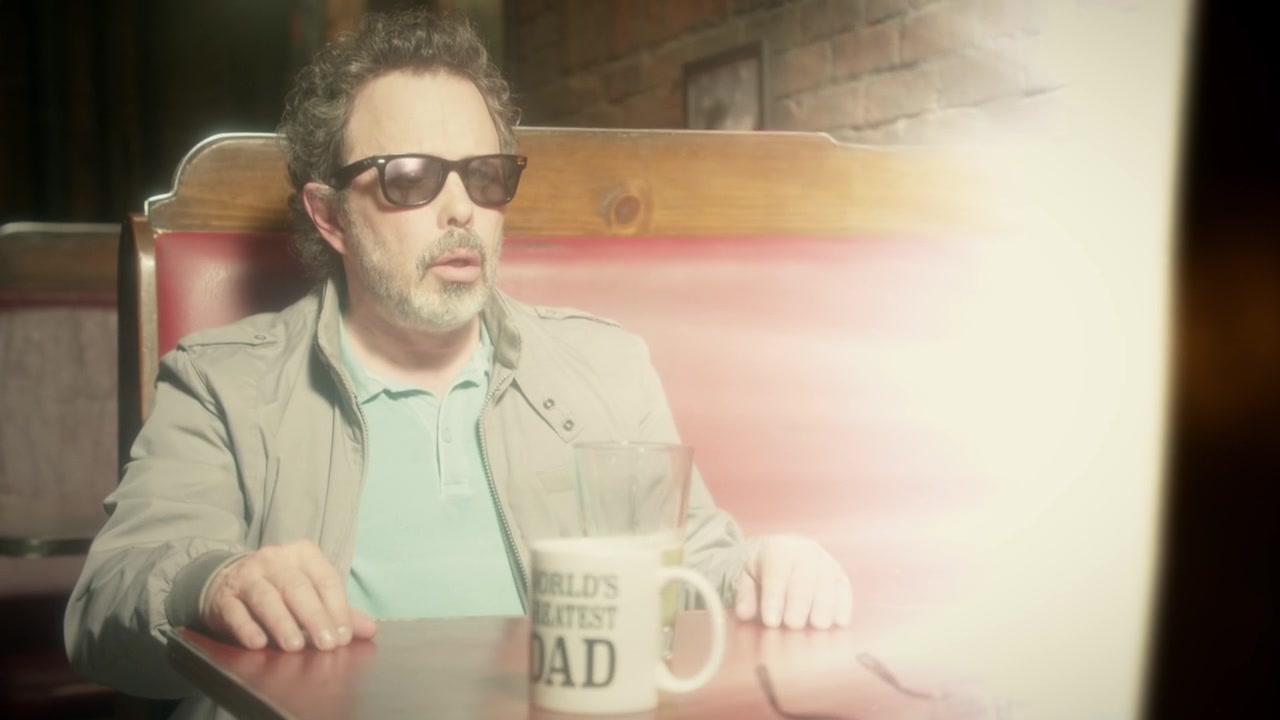
“Hallelujah” was Rob.
“Fare Thee Well” was the first song I pitched when I brought up Rob singing as a way to end the story. It was again, kinda first-draft theater but this one worked out. I was like, “Oh, I think it’s a song like this.” I pitched it to Bob, and Bob was like, “Maybe that one?” Then Phil was like, “Yeah, maybe that one.” We had a list and we all just kept coming back to that one. Then Rob did his version of it—that was more of the public domain version of it. It also helped that it was a public domain song.
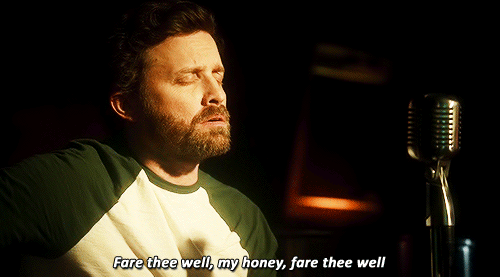
Since our discussion of music brought up the pre- and post-production processes, I took the opportunity to ask Robbie how and where the writers get slotted into the episodes’ creation cycle. He had previously (Part 1) shared fascinating details about the directives that guided Supernatural‘s writers.
“A lot of remarkable music was created in this space.”
Crafting Supernatural‘s Episodic Seasons
Nightsky: There were also two questions we didn’t get to talk about regarding the Supernatural writing process. From beginning to end, how long does a writer work on an episode?
Robbie: Oh boy, that’s a tough one. It really depends. It’s about a couple months. I used to say, like every six to eight weeks I’d get to write a little movie for Supernatural. But, yeah, it’s about six to ten weeks. It really depends because sometimes you get later in the batting order and so there’s a longer gap in between, which you always hoped was over the holidays so you could have a vacation. Nobody liked writing the holiday script. I wrote the holiday script a couple years. But yeah, it really depended. Each stage is kind of staggered. You have a couple days to write the arena, you’d have a week to write the outline, you’d have about two weeks to write the script. So, all in, that’s around three and a half weeks, but it’s staggered out because you have to get notes from everybody and things are sliding around.
The people who have run Supernatural over the years run an incredibly tight ship. I’ve had episodes of TV that I’ve had to write in two days, but I always got, pretty much, at least ten to fourteen days to write a script with Supernatural. Which in TV time is like a lifetime. It’s like a dog year. It’s like seven years, you know? It’s crazy. But that’s a testament to Bob, Sera [Gamble] and Jeremy. They ran that show really, really well. They knew what the production needed in order to get the most bang for the buck. So, you had to be on your game. You had to deliver the goods. But that’s on them. That’s all a credit to them.
Nightsky: Are the writers involved in post-production?
Robbie: We could weigh in on cuts, and were always welcome. Usually it’s a director’s cut and then a producer’s cut. You would give your notes around the producer’s cut. But it was kind of catch as catch can. It really depended because sometimes you were already writing another episode while that one was in post [production]. It’s really the showrunner who oversees all of that on Supernatural, working closely with Phil and everyone. Supernatural has an amazing post-production department. Phil [Sgriccia] and Todd [Aronauer] and PJ [Pablito Tancinco] and all those people [Shawn Wagoner and Hilary Brinkman]. They’re really, really good. The director’s cuts and producer’s cuts that you’d get were extremely high-level quality. That’s all because of that department’s hard work and excellence.
Nightsky: That was the last question about your episodes! Thank you for all the wonderful behind-the-scenes details!
Robbie and I ended our last conversation in Chicago (Part 2) talking about how Supernatural led him to writing comics. To conclude our interview today, I asked Robbie to share his hopes for the future and where his career might go next.
“Okay. Real talk. This is still a safe place, right?”
Robbie’s Career
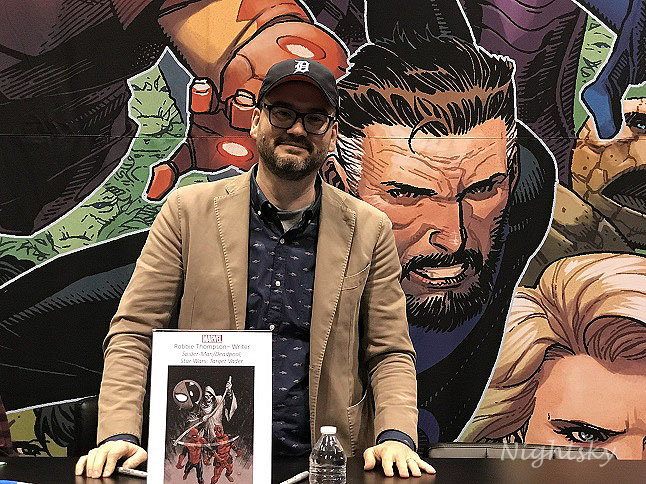 C2E2, March 1, 2020
C2E2, March 1, 2020
Nightsky: As we close, there are a few short questions that I didn’t have a chance to ask you about your career. First of all, I want to tell you that I get it; I love that you’re working for Marvel now.
Robbie: It’s fun. Yeah.
Nightsky: And [you’ve said] writing a Supernatural comic is like the ideal mash-up.
Robbie: Well, I don’t know if I would do that now. I don’t know if I would.
Nightsky: So what does your ideal future look like?
Robbie: I just want to keep writing and doing the stuff that I love. I’m writing some comics now, and I’m writing some other stuff that’s [under] non-disclosure agreements. I just love writing. I don’t really care what medium. I don’t really care what audience. I don’t care if it’s a podcast or a movie or a whatever. I just like telling stories. So, wherever that takes me is where I’ll go. I’m very lucky. I’m very, very fortunate.
Nightsky: Is there any chance one of your Marvel characters will get used in a movie?
Robbie: Oh, I have no idea.
Nightsky: You could become the next blockbuster writer!
Robbie: No, no clue. And there’s a real separation there between comics and the TV and the movie world. I would love to see… I wrote a character – I didn’t create her – but I wrote a character called Silk (Cindy Moon). I would love to see her in any of the movies or animated stuff. I just wrote a book called Meet the Skrulls, which I think would be a cool show. But that’s above and beyond my pay grade. I just write the comics. If anything happens to them, that would be wonderful, but I’m also just happy they exist as they are.
An enormous Thank You to Robbie for graciously taking time to share memories of his experiences writing Supernatural. I am immensely grateful for this invaluable chronicle of the writing and editorial processes on his episodes and the series. Robbie’s insights on style choices, character development, music selection and so many other aspects of storytelling also granted us a rare opportunity to learn about writing from one of Supernatural‘s best. I certainly learned a great deal from this interview. I hope it deepened your appreciation of Supernatural and the work that goes into crafting such a groundbreaking series.
#ThankYouRobbie
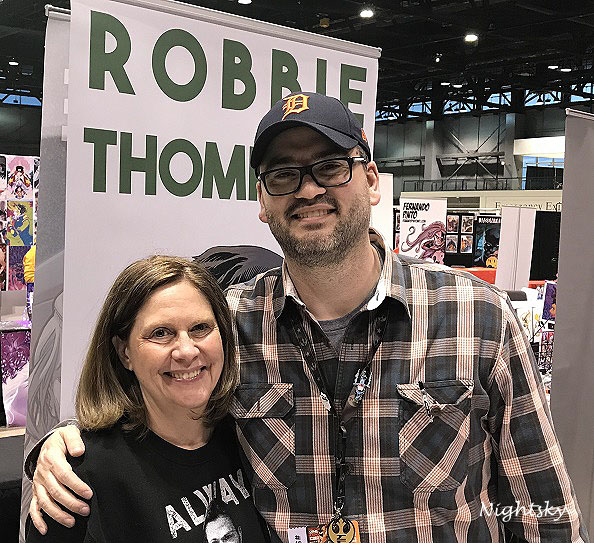 C2E2, March 23, 2019
C2E2, March 23, 2019
(The day after we all heard that Supernatural’s next season, season 15, would be the end of an era. Yes, I specifically needed to wear my #AKF shirt.)
Please share your comments, reactions and questions below!
References
B.G.’s Canteen was the setting of Metatron’s conversation with Chuck in “Don’t Call Me Shurley” 11.20.
“Don’t Call Me Shurley” quotes confirmed with Springfield! Springfield!:
“Music is magic” – Chuck
“A lot of remarkable music was created in this space.” – Chuck
“Okay. Real talk. This is still a safe place, right?” – Metatron
An immense thank you to Chelsea for the transcription of this interview!
Miscellaneous show details researched on Supernatural Wiki
Learn more about Robbie Thompson and his tips on writing:
Robbie was the keynote speaker at a 2015 DePaul University conference in Chicago, Il. During a multi-hour presentation, Robbie gave what amounted to a “master class” in writing. Alice Jester and Nightsky reported on his lecture: DePaul Part 1, Part 2, Part 3
In 2016, Robbie answered fans’ questions about the show, his episodes and Supernatural’s characters during an hour-long panel at Chicago’s C2E2 convention. Nightsky was there, and published a complete, illustrated transcript of the panel: C2E2 2016 Part 1, and Part 2
Also in 2016, Percysowner created a short summary of Robbie’s early years working with Marvel. Included is a video interview of him on his Silk and related Marvel work.
In 2013, Farawayeyes compiled a comprehensive profile of Robbie’s television and graphic arts writing career to that point. Included is a short interview with Robbie about his first few episodes on Supernatural. Robbie Thompson Profile: Part 1, Part 2, Part 3




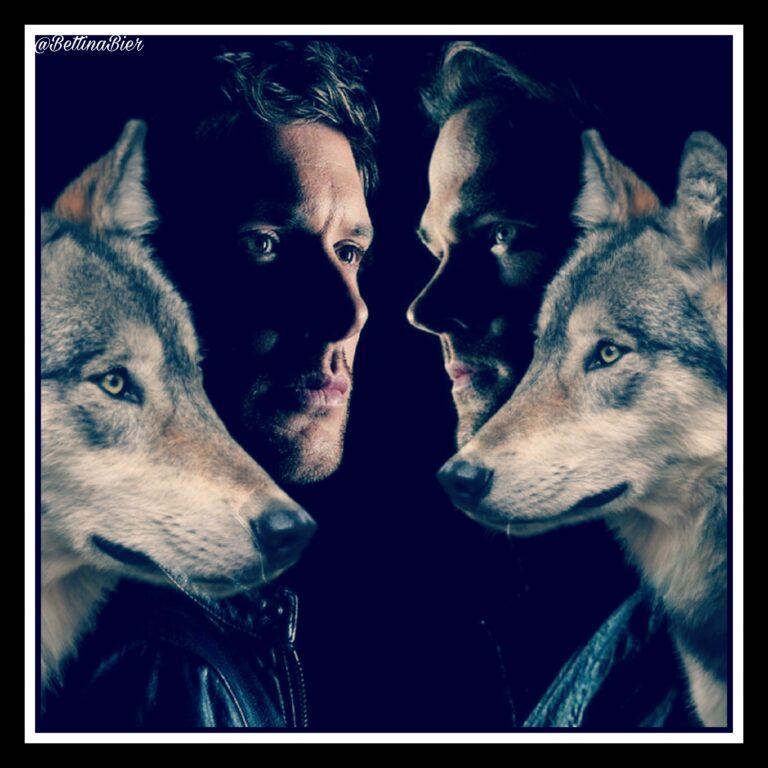
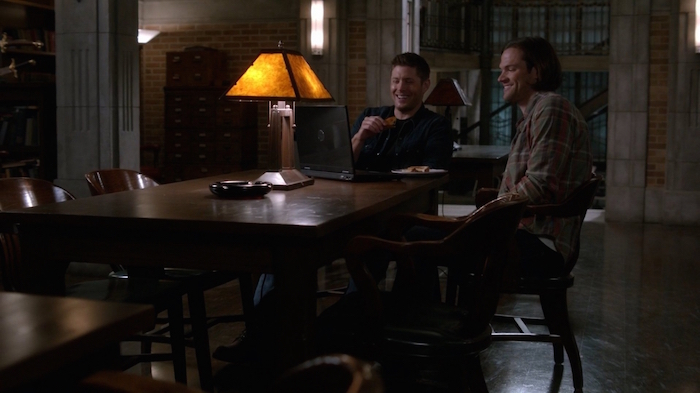
Leave a Reply